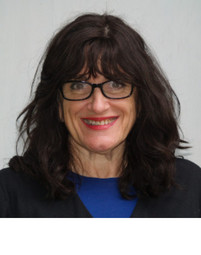How to Write a Reflective Statement
A teacher may be asked to write a reflective statement about previous professional development activities. While there are many types of reflective statements, we’re going to do a deep dive on student learning reflective statements.
When writing a reflective statement related to supporting student learning, you must be able to answer this question, ‘How have I supported student learning?’
Student learning is dependent on a number of factors, such as social and physical environment, curriculum, personal understanding and initiative, teacher’s skill, and style of teaching. The challenge the teacher faces is to create an environment that does not hinder, but supports the inherent ability of students to learn.
While writing a reflective statement on student learning, there are certain areas or questions that must be discussed. These areas are:
What did I do?
Consider including the following types of examples:
- Activities incorporated into lesson time
- Classroom management strategies
- New strategies to explain a difficult concept
- Positive behavior management strategies
- Activities or strategies to increase student concentration, participation, and engagement
You can also include anything else you incorporated into your classroom practice that improved student learning.
How did I assess student learning?
Describe the methods you used to assess student learning in the classroom using some of these examples:
- Observation and questioning strategies
- Paper-pencil tests (multiple choice and short answers)
- Essays
- Group discussions
- Paired discussions
- Problem-solving activities
- Summary writing
- Question-answer session
- Brainstorming
What were student reactions?
Include descriptions such as:
- How the students reacted to the new activities and strategies you incorporated in the classroom. For instance, did it create a positive or negative impact?
- Reasons for their reaction
- What you can change or modify to create a positive impact
What was the impact on early assessments?
Here you describe:
- The results of student assessments
- How the outcomes of the assessment compare with previous assessments
What was the impact on other subjects?
If the strategies you employed for a particular subject made a positive impact on any other subject, write briefly about it in the reflective statement. For e.g. dividing students into groups for classroom management has proved beneficial for math class also where students learn better while working out difficult problems in groups.
How did it impact student motivation?
Write about whether your new activities and strategies have enhanced student motivation or not. You could assess motivation by:
- Observation
- Test results
- Student responses
- Student participation
What are my new goals in this course?
Based on your experience with the new strategies and how they impacted student learning, you can formulate new goals based on student assessment. Formulate new goals through:
- Reflection
- Peer observation
- Discussion
- Mentoring, etc.
New goals may include:
– Incorporation of new activities and strategies
– Modification of strategies
– Change in assessment plan
Example
Mrs. Jaxson, a third-grade science teacher, shares her reflective journey on supporting student learning:
“Reflecting on my teaching practice has been transformative. I’ve learned that creating an engaging learning environment is crucial. By rearranging our classroom seating into groups, I fostered collaboration and peer tutoring. Despite initial challenges, this change significantly improved student engagement and reduced disruptive behavior.
Realizing traditional lectures weren’t always effective, I incorporated more hands-on activities. A memorable project involved students creating a database of local animals and birds using computers and other resources. This activity revealed my students’ true potential and ignited their enthusiasm for science.
A workshop on open communication led me to implement daily ‘meeting’ times. Using a ‘talking stick’, students shared their experiences, concerns, and joy. This practice built trust and mutual respect, addressing issues I hadn’t been aware of previously.
Reflective teaching has been instrumental in my professional growth. I’ve witnessed its positive impact through my students’ improved performance and engagement. I’m committed to continually evolving my classroom into a space where learning is both effective and enjoyable.”
Although you may begin writing a reflective statement to fulfill certain state or school requirements, by the end of it you will realize how much it has helped you as a teacher. Take the time to sit down, reflect and write about all that you have accomplished in the past five years. This will help you understand how much you have grown as a teacher and how much your teaching has impacted student learning. Reflective statements have proven to be worthwhile tools to assess a teacher’s professional growth. This process paves the way for teachers to formulate new goals for the future so that they can focus on student learning, continuous improvement and their own lifelong education.
Learn more about reflective teaching practices with online continuing education from Professional Learning Board.
 About the Author
About the Author
Ellen Paxton is a respected expert in education and best known as the Chief Learning Officer of Professional Learning Board. As a two-time National Board Certified Teacher, Ellen has successfully published and customized online professional development courses and Learning Management Systems for 20 years to help teachers meet their state continuing education renewal credit requirements. Through ProfessionalLearningBoard.com, RenewaTeachingLicense.com, and ConnectedPD.com. Ellen has established solutions and maintained partnerships with several accredited universities, higher education institutions, teachers’ unions and state Departments of Education while setting strategic direction that makes a difference and overseeing implementation of popular online PD.

Comments are closed.